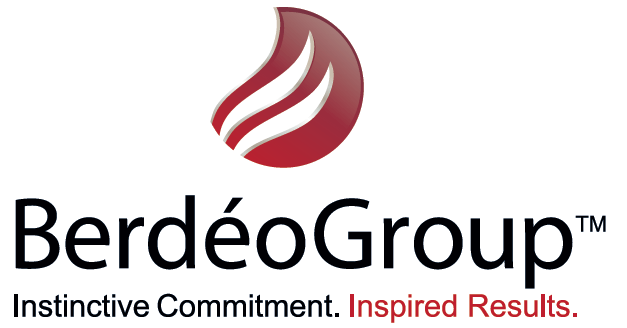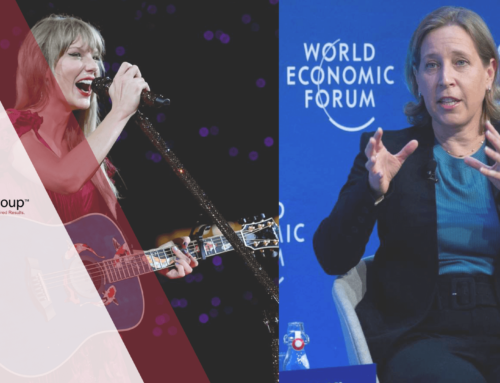Straight talk from four business leaders in Ethiopia, Israel, and more.
I’ve written extensively about charting your course in life. Defining success for yourself, on your terms, is key to living a full and meaningful life. But in a U.S. culture that emphasizes wealth, power and recognition, success based on intrinsic motivators may seem instinctively foreign. When was the last time you asked yourself, “What does success mean to me?” If your answer elicits negative emotions, then you haven’t yet found your true North.
In his book Find Your Way, author and speaker Simon Sinek says, “Very few people or companies can clearly articulate why they do what they do. By why, I mean your purpose, cause or belief – why does your company exist? WHY do you get out of bed every morning? Why should anyone care?” Living by your why means defining success on your terms and ignoring the one-size-fits-all approach.
So, how do you abandon a culturally ingrained definition of success–one that you’re conditioned from a young age to pursue? We interviewed four very successful leaders from varying professions and countries to understand how their unique definitions of success have shaped their careers and perspectives.
Wubet Girma, Deputy Country Director, British Council Ethiopia
Wubet Girma spent her long career creating opportunities for underprivileged Ethiopians through programs focused on building skills and capacities, investing in social and human capital for inclusive and sustainable growth. “I was 17 and trying to find my way and my passion and my life’s goal, so it’s when I started asking the question regarding if people are born with the potential or with something to give to this world, then why are they not doing that? But then I started asking that question and started reading about social justice and the fact that people don’t get what they need and don’t have the opportunities to pursue that. I chose Sociology and social administration. I decided to go back to school to be able to work with people and help them pursue that.”
So, how does access play a role in people’s success? Now, as the Deputy Director at British Council Ethiopia, she has the unique opportunity to create programs that help support those who otherwise wouldn’t have access to them. Her involvement in EthicalCoach bridges the for-profit and nonprofit worlds, bringing executive coaching, previously only available to corporate leaders, to charities and nonprofit organizations addressing the greatest humanitarian and environmental challenges of our time.
How do you define success for yourself?
“Finding out what I’m here for and pursuing that … regardless of the challenges that I come across. So many people don’t have the same access to basic educational services and safety, and those of us who are privileged need to give back and create opportunities for those who don’t have it.”
What advice would you give to people in pursuit of their success?
“Try and find what you are here for; what your purpose is; what you’re all about. I would focus on not comparing yourself to others, but rather having your own conception of who you are, as there is only one you in this world. So, what it is about you that you can give? What is so unique about you?”
How have you overcome the different challenges you’ve faced?
“Different phases of my life have imposed different challenges. What has taken me through that is the mindset that I should be living out my passion regardless of the barriers that I come across. We recently discovered something profound that my Grandfather wrote in his notebook. It says, ’You don’t need to do too much, but hold on to that one thing your heart desires and you are passionate about, and devote yourself to it wholeheartedly.’”
Keren Maimon, Founder of Tel Aviv Investing, Israel
Keren Maimon was not your average teenager. Fascinated by software development, she immersed herself in it and taught herself how to program. She founded her first startup, which created a location-based real estate app, to help her sister more easily find an apartment. From there, she founded the software development company Appollo to ensure partnership with every startup they helped to develop. The company expanded swiftly, and thus her responsibilities did, too. These were formative years for Maimon as she learned “the important parameters for an entrepreneur to succeed. I think that it all begins in passion, belief, the will of entrepreneurs not to give up and the desire to make a change to something in the world.”
Now, at the ripe age of 24, she is a partner at Tel Aviv Capital, a venture capital fund and investment bank that has raised more than $120 million for Israeli start-ups.
How do you define success for yourself?
“My satisfaction comes from the journey and not the destination. I think the first time I felt slightly accomplished was when I realized that I employed a large group of people, and, due to the business I built, they can provide for their families. It’s that moment when you realize and understand that you have an impact on a lot of people’s lives and their families.”
How has being a woman in a male-dominated field shaped your work ethic?
“It is true that there are gaps that must be bridged, but much of that depends on us, the women, as well. Do we give room and attribute high importance to these gaps? Or try to initiate, overcome and bridge them? I think that in Israel there is a great effort to try to integrate women into the high-tech sector.”
What is your advice for individuals in pursuit of their definition of success?
“Not to give up on their dreams, to believe in their vision …The most important thing that only experience can teach you is choosing the right partners and investors for your journey. They are those who need to believe in you and your vision; it’s most important because when times get tough, they will support you no matter what. Success needs to be felt collectively; the partners should stay humble and respectful to one another, this is what I believe to be the foundation of entrepreneurs succeed … Stay real and honest with yourself and be in a supportive environment.”
Myo Myint Kyaw, Founder and CEO of Revo, Myanmar
Over the past decade, entrepreneurs like Myo Myint Kyaw have played key roles in Myanmar’s economic revival. When he co-founded leading creative digital agency, Revo, in 2012, Kyaw was not in pursuit of wealth or power, but in creating jobs for his fellow citizens. Revo is Myanmar’s first and only Facebook local partner and has been in partnership with many other high-impact international brands. Kyaw also founded Akhayar Media in 2016, which has grown to become Myanmar’s leading digital media resource for lifestyle and technology-related content.
How do you define success for yourself?
“To have a meaningful measure of success, you need to have a goal in life. I don’t measure with revenue or anything external. My goal is very simple. I want to create jobs in Myanmar. If you are only motivated by extrinsic goals, you will never be satisfied. You need to have a purpose in life. You need to know why you started. Then you will know what success is.”
How has travel impacted your leadership?
“I was a very shy guy and working in London really shaped how I operate and lead my company. I learned a lot about how to run a successful business from my previous my bosses abroad. It becomes easier to operate and do businesses with other countries when you experience other cultures.”
Victoria Welsby, Founder of Bam Pow Life, Canada
Victoria Welsby is a highly sought-after confidence and body image coach, body positivity activist and best-selling author. Her path was riddled with incredible hardships, including homelessness and emotional and physical abuse. “I have been in the depths of despair, not even believing that I deserved a permanent home. My standards were so low.” Getting through this experience helped shape who she is today. “Because I changed that [a disempowering mindset] for myself, I know the power of believing in yourself, loving yourself.”
Before becoming a full-time coach, Welsby had a well-paying corporate job. She knew, however, that she was not fulfilling her life’s purpose, which was empowering women through her work. “My goal is to change the world, and so I had to quit my job.” She quit her career to pursue her dream with six months in living expenses saved.
How do you define success for yourself?
“For me, it’s freedom—working for myself; being able to do anything I want; working on any project I want; making my own hours and having the financial freedom to do so.”
What factors motivated you to overcome the challenges you faced?
“There were lots of times when I thought, ‘Who am I kidding?’ I left a cushy career that was easy and well-paid, not making money at the time. But the thought of going back to a ’real job’ made me sick … But the fear of doing whatever I was doing in my business was not as great as the fear of going back to the corporate world.”
What advice do you give to individuals pursuing their definition of success?
“I see so often people wanting to do something with their vision, and they don’t take action because it isn’t perfect or they aren’t perfect and it makes them not take any action. The reality is you’re not perfect. No one is. If you want everything to be perfect, then nothing’s ever going to happen. I’m also comfortable with that fact that you can’t predict what’s going to happen, but you can do your very best. For those who don’t have the means to quit their career to start a business, Welsby recommends “taking a part-time job that is closer to what you really want to do.”
Figuring out your definition of success takes a great deal of introspection and vulnerability. The journey will be scary at times. There will be moments when your inner critic will tell you to raise the white flag. As we’ve learned from these four incredible, but also very human, individuals, returning to your “why” will get you through the storm. So—darn it!—what’s your “why?”
This article originally appeared on Psychology Today Oct 02, 2018





